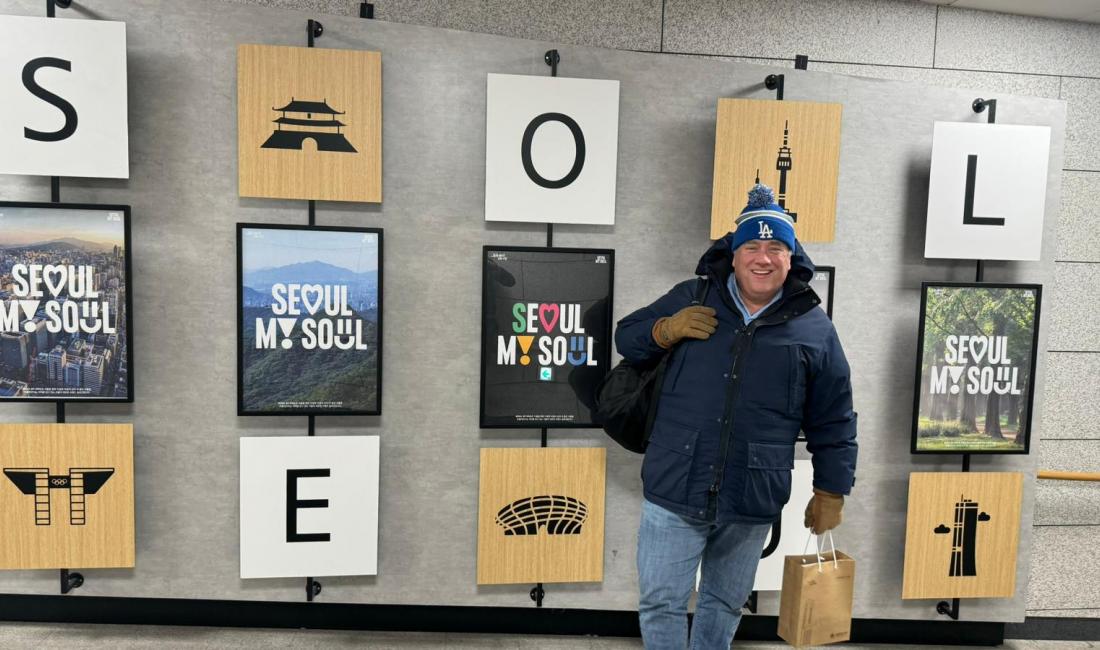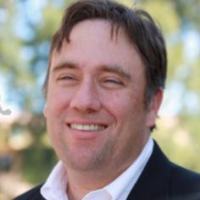A busy March for democracy.
This is the regular newsletter of Democracy Local, a new planetary publication devoted to—you guessed it—local democracy, defined as “everyday people governing themselves.”
If you haven’t signed up for this newsletter, you can do so here.
LOOKING FOR DEMOCRATIC HOPE? CHECK YOUR MIRROR
Democracy Local went to South Korea in January for the first time since the 2020 suicide of Seoul Mayor Park Won-Soon. Park, the planet’s most activist mayor (with the possible exception of then Barcelona Mayor Ada Colau), was a global giant of democratic practice and innovation.
But his death revealed a personal scandal that tarnished his legacy. In Seoul, I spent time around Seoul’s city hall and its metropolitan council, as well as in suburban Gyeonggi province. In the process, I learned how the innovations that Park championed have been maintained and spread less by officials, and more by people and social movements.
I also got a strong reminder that local democracy, and our democratic hopes, can’t depend on one person—it’s everyone’s job. Please check out my Democracy Column, “After the Mayor’s Death,” in English and in Korean.
WHEN FASCISM GROWS IN YOUR COMMUNITY
Ralf-Uwe Beck, a pastor and democracy activist in Germany’s east, is one of the most extraordinary people I’ve met in two decades of studying democracy around the world. He’s a Lutheran Church officer and a regional and national leader of the pioneering organization, Mehr Demokratie (More Democracy).
Recently, at my invitation, Ralf-Uwe wrote a piece for Zócalo Public Square (republished at Democracy Local) about life in East German communities, including his own, as support grows for the far-right AfD party. It’s an intimate look at the intersection of neighborhood and politics. He writes:
On my street, half of the families are involved in a neighborhood association. We take care of a soccer field for children and teenagers, rake leaves, and generally clean up. We also maintain a small forest and create bee pastures. After our workdays, we sit around the grill with a beer and talk, sensibly. Does one out of every three of them vote right-wing extremist? That seems hard to believe.
But it’s very likely that many of my neighbors are disappointed with the existing politics. Soon, we won’t be able to avoid the AfD issue anymore just to keep the neighborhood peace.
Since the piece was published a few weeks ago, there is already an update. Ralf-Uwe and Mehr Demokratie have launched a website to connect people in East Germany as they reckon with the rising right. Ralf-Uwe says in the announcement: “One swallow doesn't make a summer, a website doesn't prevent the feared shift to the right. But we want to encourage people and show where and how they can get involved.” You can find out more here (in German).
Also, in the reading department, our partner Asia Democracy Chronicles is publishing smart, “as told to” stories from activists and practitioners in cities.
From Osaka, this piece from Aoi Horiuchi, deputy director of THINK Lobby and co-founder of the Japan NGO Action Network for Civic Space, digs deep into how cities shape us democratically. And from Hong Kong, you must read this essay from young activist Sunny Cheung about how a diaspora of democracy activists and practitioners from that city are pushing for democracy both in their hometowns, new and old.
THE PLO LOOKS AT CITIZENS ASSEMBLIES
Citizens or people’s assemblies—representative bodies of everyday people formed, often through lotteries, to make decisions—are showing up in local governments and at other levels and institutions.
Here is a new context for citizens assemblies. At a recent Carnegie Endowment for International Peace event, panelist Zaha Hassan, a human rights lawyer and Carnegie fellow, revealed that another organizer is interested in using citizens assemblies: the PLO, or Palestinian Liberation Organization.
As the war in Gaza pushes more Palestinians to confront Israel, the PLO is seeking to remake its old governing system, which relies on an outdated concept of proportional representation. And to do that, it’s looking at citizens assemblies as a model, Hassan said.
Carnegie has a typically smart series looking at post-war Gaza governance. You can watch the Carnegie event here.
MARCH TO YOUR DEMOCRACY EVENTS
March is a big month for democracy gatherings.
Starting today, March 4 is Civil Society Week, with the theme “Rise Up for Democracy,” put on by the European Economic and Social Committee. The tremendous program includes democracy organizations and thinkers from around Europe. Much of it is online. Included is European Citizens’ Initiative Day, March 5, with an annual conference looking at the world’s greatest (so far) transnational democratic tool. Daniela Vancic, European program manager of Democracy International, is moderating the opening event, "ECI at a Crossroads.'
On March 7, the indispensable Sweden-based global think tank on democracy, Varieties of Democracy V-Dem, releases its Democracy Report with an event starting at 15.00 Central Europe Time. There’s a preview here.
On March 14, Democracy International hosts a free webinar looking at legislations that involve or use direct democracy. The perspective is global, but many of the examples will consider Taiwan’s robust and rapidly changing direct democracy. You can register and fine more details at https://www.democracy.community/registration-navigator-webinar
On March 16, Arboga, one of 293 municipalities in Sweden and the home city of the first Swedish Parliament, hosts its own Democracy Day. It is meant to inform the global Summit for Democracy, which is scheduled for Seoul March 18-20. That global event is a mess (I can testify firsthand—as someone who was invited but couldn’t figure out the last-minute logistics of in-person attendance). So it should be easier for everyday people to participate in Arboga, where attendees should produce “a list of ten priorities for making democracy more resilient and participatory,” according to Democracy Local’s own Bruno Kaufmann
The week of March 18, you should get yourself to Northern Ireland for the world’s greatest democracy festival, Imagine Belfast. Among the highlights: “Participatory Budgeting—Achievements and Ambitions,” “How to Unlock Democracy For Young People,” and a performance by the rebel poet-songwriter Attila the Stockbroker. The full program, as eclectic as Ulster itself, is here.
Looking ahead to April, please save the date Tuesday, April 2, for Democracy Local’s next event, hosted by the Berggruen Institute. It’s called, “Barcelona vs Bogota; What Is the World’s Most Democratic City?” I’ll be moderating an online panel with two speakers in each city. The panel starts at 13.00 (1p) Bogota time and 19.00 (7p) in Barcelona, and will run 75 minutes. Confirmed speakers include distinguished legal scholars and democracy practitioners (from Ideemos) Indira Latorre and Felipe Rey of Bogota (who were also educated in Barcelona), and Elisenda Ortega, head of the participation promotion department for the Barcelona city council.
READINGS: OF YOUR BRAIN, BY YOUR BRAIN, FOR YOUR BRAIN
Can fMRI-scans predict whether we ally with the political left or right? Do our brains explain when and why we protest, seek revolutions, or even fight wars?
The field of neuropolitics is answering these questions. Coventry University political scientist Matt Qvortrup, affiliated with the Center for Trust, Peace and Social Relations, digs deep into the connections between our brains and our democracies in his new book, The Political Brain.
And if you’re further interested in the growing intersection of science and democracy, you should subscribe to the terrific and informative newsletter from Democracy Next, which is better known for its work organizing and promoting citizens assemblies and other forms of deliberative democracy.
Also at the intersection of science and democracy stands the fourth edition of Solonian Democracy Institute’s Digital Democracy Report, which tracks both the development and application of digital technologies in democracy. This year’s report includes evaluations of 21 eDemocracy tools from 17 countries. I received the report, available for download here, just as this newsletter was being published. More on its details later.
Finally, Democracy Next founder and CEO Claudia Chwalisz has a thoughtful item inspired by the late Nobel Prize-winning theoretical physicist Richard Feynman (he’s the very young scientist played by Jack Quaid in the Los Alamos scenes of Christopher Nolan’s recent film Oppenheimer).
In the piece, she argues that deliberative democracy allows for more science, and collective wisdom, in our public decision-making.
Science helps us to understand what is likely to happen if we do something. Collective deliberation helps us to decide whether we want that to happen. In politics, we need to consider both. Yet our current institutions and processes centred around election campaigns, political party logic, and charismatic leadership do not incentivise public decision making that is grounded in both scientific evidence and discussion of collective values.
You can learn more and subscribe here.
DEMOCRACY IS FOR BREAKING UP
As Matt Qvortrup explained in a previous book, democracy is often used for separation. A new poll suggests that my home state, California, is about to be a focused of democratic efforts at independence.
The Independent California Institute has a groundbreaking poll out showing broad support for the peaceful separation of the Golden State from the rest of the United States (Full disclosure: I offered some advice and a tiny donation to make the poll possible).
You can find the results here.
WATCHING DEMOCRACY
If you want a riveting and horrifying vision of a city without democracy, and the ties that bind, check out the award-winning Iranian film Holy Spider, available on Netflix in much of the world. It’s about a journalist, a woman, who investigates the serial killing of sex workers in the not-so-holy city of Mashhad. In the end, a city without self-government makes everyone complicit in death.
WORDS OF INSPIRATION
“Democracy doesn't recognize east or west; democracy is simply people's will. Therefore, I do not acknowledge that there are various models of democracy; there is just democracy itself.”
Shirin Ebadi, Iranian political activist and Nobel Peace Prize winner.




